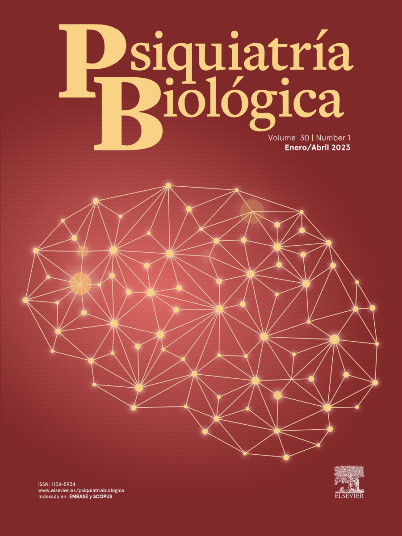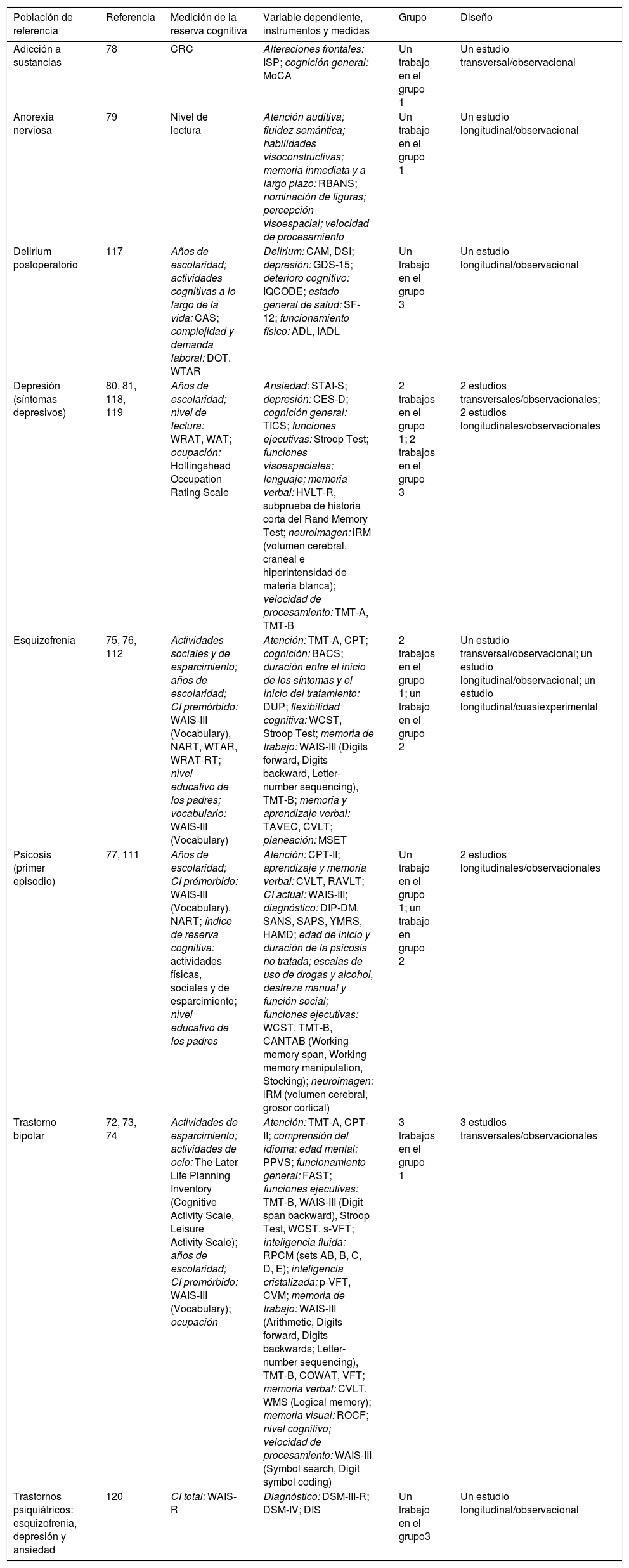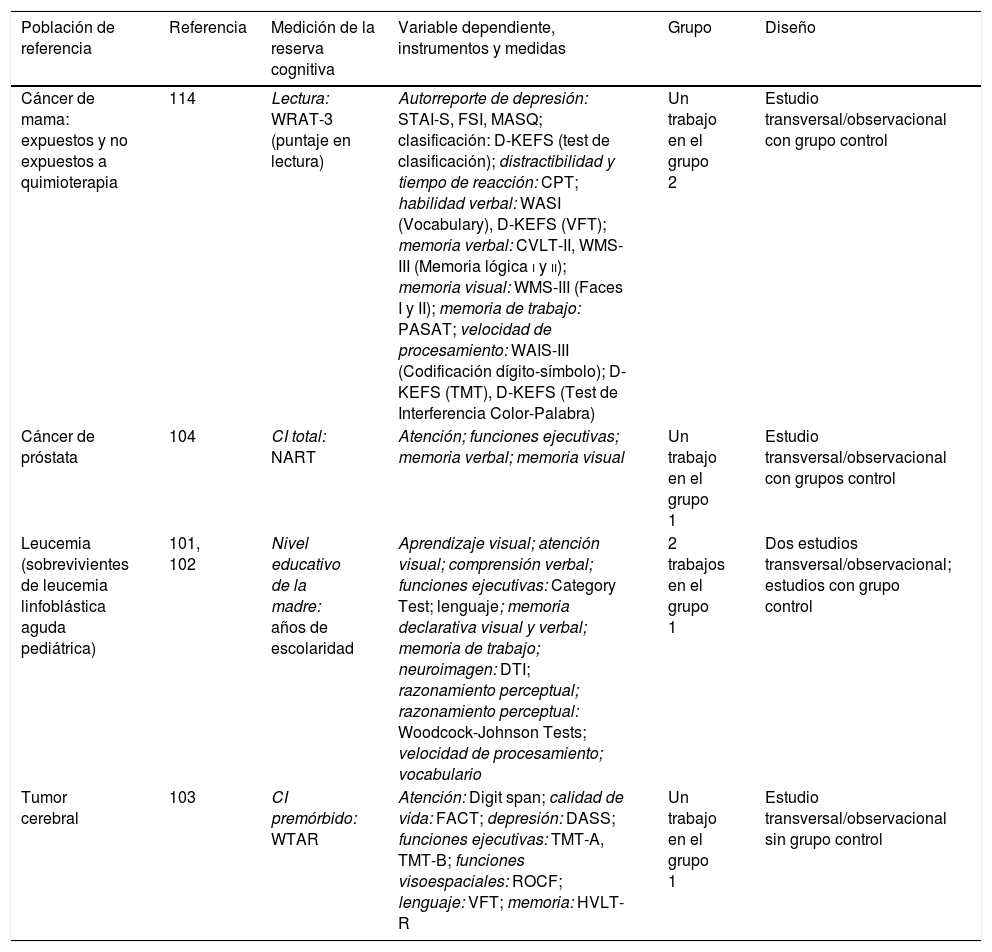Se considera la reserva cognitiva (RC) como la optimización de los recursos cerebrales al emplear redes neuronales y estrategias cognitivas alternativas. Se piensa que la RC es una explicación plausible a un mecanismo potencial que permite al cerebro compensar deficiencias, ya sean causadas por el deterioro cerebral o por el declive funcional.
ObjetivoAnalizar la información de la literatura científica acerca de los efectos de la RC sobre variables clínicas y cognitivas en pacientes con diversas enfermedades distintas a las demencias.
DesarrolloSe realizó una búsqueda sistemática en las bases PubMed/Medline y ScienceDirect de artículos que evaluaran la influencia de la RC sobre variables clínicas y cognitivas en pacientes con enfermedades distintas a las demencias, incluyendo estudios empíricos con diseño longitudinal/transversal y observacional/cuasiexperimental. Se incluyeron 107 artículos.
ResultadosMayores niveles de RC se relacionan con un menor deterioro cognitivo en una gran variedad de trastornos y con una mejor recuperación en pacientes con enfermedad neurológica, psiquiátrica, infecciosa, cáncer, etc. También hay evidencia sobre el papel de la RC como factor protector para el retraso en el desarrollo de enfermedades neurológicas, neuropsiquiátricas, infecciosas, etc.
LimitacionesPodría existir más bibliografía, pues solo exploramos 2 bases.
ConclusiónUna aproximación a la RC podría estar constituida por un conjunto de variables (cognitivas, demográficas, físicas, etc.) que parecen influir de manera importante sobre aspectos cognitivos, clínicos y funcionales de diversas enfermedades. Se subraya la necesidad de investigar a profundidad el papel de la RC en el proceso de recuperación y como factor protector en diferentes dolencias.
Cognitive reserve (CR) is considered as an optimisation of brain resources by using alternative neural networks and cognitive strategies. It is suggested that CR is a plausible explanation of a potential mechanism that allows the brain to compensate deficiencies caused either by brain damage or functional decline.
ObjectiveTo analyse the information from scientific literature about the effects of CR on clinical and cognitive variables of patients affected by disorders other than dementia.
DevelopmentA systematic search was conducted in the PubMed/Medline and ScienceDirect databases. A review was performed on articles that assessed the influence of CR in clinical and cognitive variables associated with disorders other than dementia. Empirical, longitudinal/transactional, and observational/quasi-experimental design studies were considered. The study finally included 107 research papers that fulfilled the established criteria.
ResultsHigher CR levels were associated with lower cognitive impairment in a wide variety of disorders, as well as with a better recovery on neurological, psychiatric or infectious conditions. Moreover, there is evidence on the CR role as a protective factor that could delay the development of neurological, neuropsychiatric, or infectious disorders.
LimitationsAs only 2 databases were searched, there may be more literature references on CR.
ConclusionCR proxies constitute a set of variables (cognitive, demographic, physical, etc.) that may have a significant influence on cognitive, clinical and functional aspects of different disorders. The need to conduct more research about the role of CR in the recovery process and as a protective factor in different disorders is highlighted.
Artículo
Comprando el artículo el PDF del mismo podrá ser descargado
Precio 19,34 €
Comprar ahora












